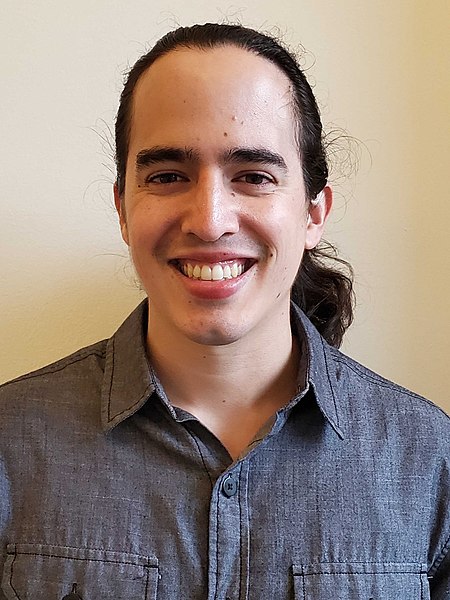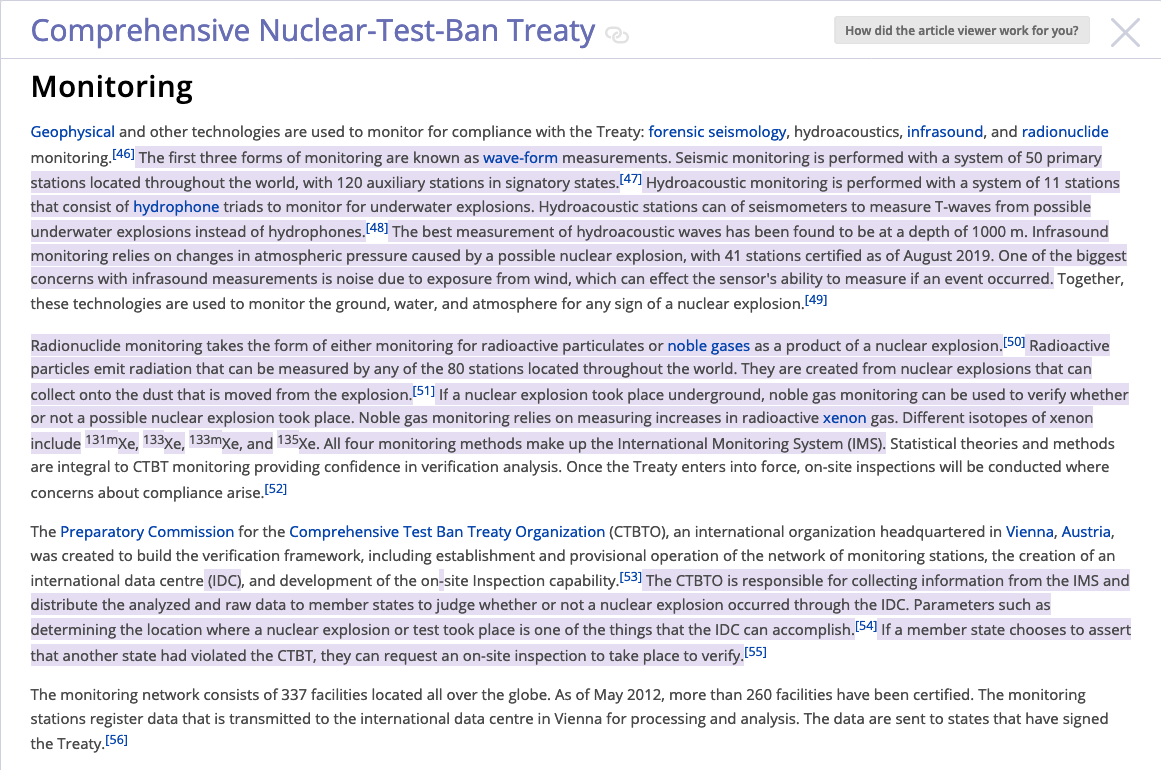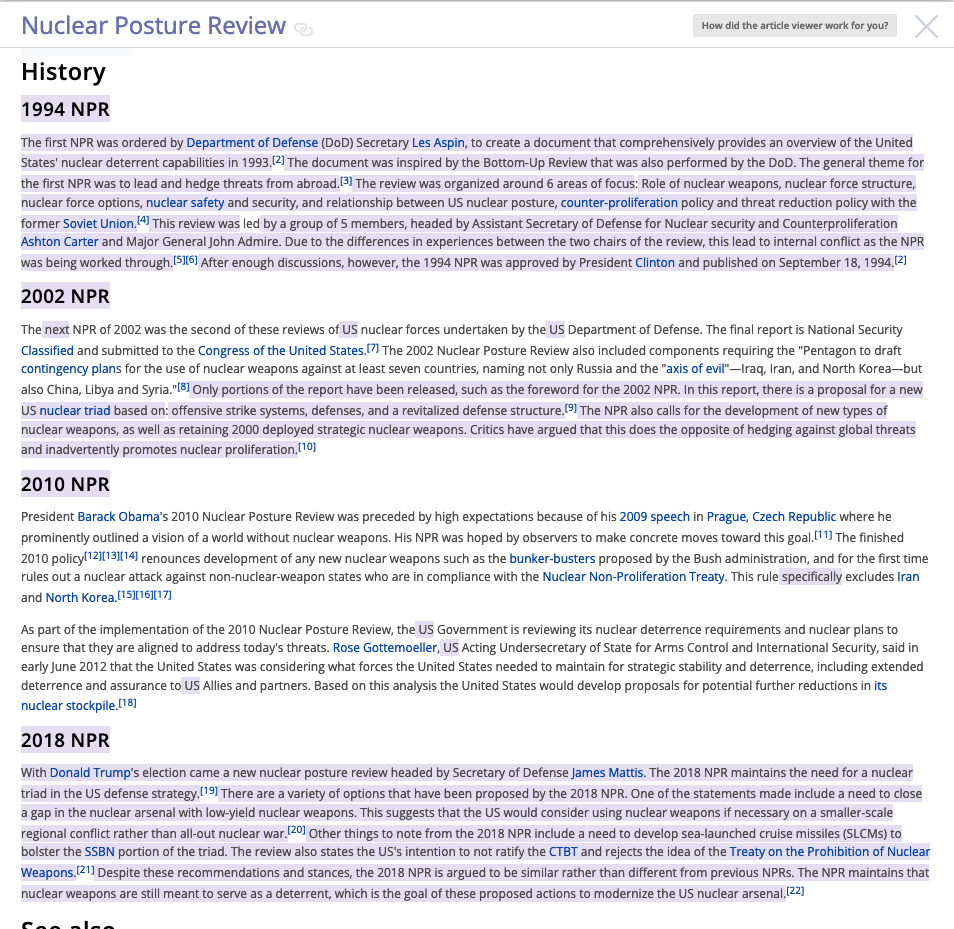Daniel Puentes is a Graduate Research Assistant at Michigan State University and recently completed our Wikipedia training course sponsored by the National Science Policy Network.

Image by Lightning1115, CC BY-SA 4.0 via Wikimedia Commons.
Wikipedia is one of the most popular online resources for anyone to get information that they’re interested in learning. During election years, voters will use Wikipedia to read about different candidates that are running for federal-level positions such as the President of the United States of America. Within each of these pages there exist links to different topics that are relevant to science. With this understanding, a group of researchers and myself participated in a Wikipedia training program offered through Wiki Education and funded by the National Science Policy Network (NSPN). The goal of this training was to provide our group with the knowledge to edit Wikipedia pages that are based either directly on science or science policy-related topics.
With my expertise in nuclear science and nuclear policy, I wanted to make a difference by improving Wikipedia pages related to nuclear policy. After a few weeks of training through the course, we were assigned to begin making improvements on a page that we were interested in, beginning in an on-Wikipedia draft space called the “sandbox”. The sandbox is an excellent tool because it allows people to practice editing a Wikipedia page without making edits to the main pages directly. I chose to edit the page that discussed the Comprehensive Nuclear-Test-Ban Treaty (CTBT).
This page was important to me because the CTBT is a cornerstone treaty that has been signed and ratified by most states across the world. The US has not ratified the treaty, despite the CTBT organization’s ability to monitor and verify whether a nuclear explosion occurred. This motivated me to improve the quality of the monitoring and verification sections for the Wikipedia page. One area that needed improvement for the page included finding and adding more citations for the section, as suggested by a warning banner above the section.

The second article that I chose to edit was on the Nuclear Posture Review (NPR), which was incredibly outdated. The NPR is a document that is ordered by a new incoming president that describes the US’s position on nuclear weapons for the administration in power since the Clinton administration. The Wikipedia page hasn’t been updated since the Obama administration published its NPR in 2010. However, the Trump administration published its NPR in 2018. The page also offered little information about the 1994 NPR and 2001 NPR, which is of little use to readers interested in nuclear policy topics. After my edits, the page now has descriptions of the four NPRs that have been published in the last 30 years.

The cohort of Wiki Scientists worked to improve a variety of Wikipedia pages relevant to science policy, such as genetic testing, agriculture in California, and food safety in the United States. The results speak for themselves. The edits that were made through our group have had approximately 2.99 million views since the inception of the group. Thirty-eight thousand words have been added to improve the quality of Wikipedia articles. There have also been 386 references added to a variety of topics, improving the quality of the content found on this resource across disciplines.
Now that I have completed the course, I will continue staying active with the Wikipedia community and its resources. I think it’s great that there are monthly challenges and contests revolved around improving the quality of a specific group of articles. Different articles that I plan to edit in the future include penning traps and science policy of the United States. My goal is to provide quality content on topics that I think are important for the general public. I thank the Wiki Education team and NSPN for the incredible course and support.
To see our current training courses that are open for registration, visit learn.wikiedu.org. For inquiries about partnering with Wiki Education, contact Director of Partnerships Jami Mathewson at jami@wikiedu.org or visit partner.wikiedu.org
